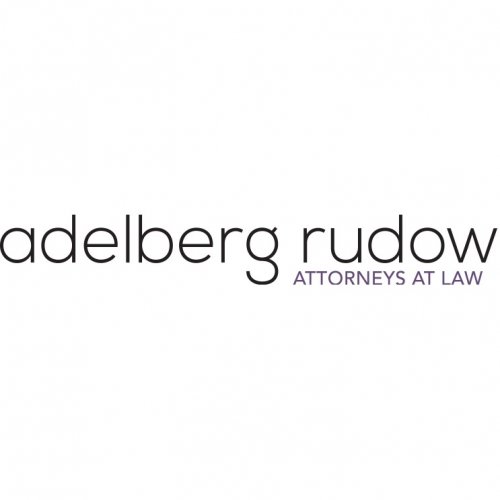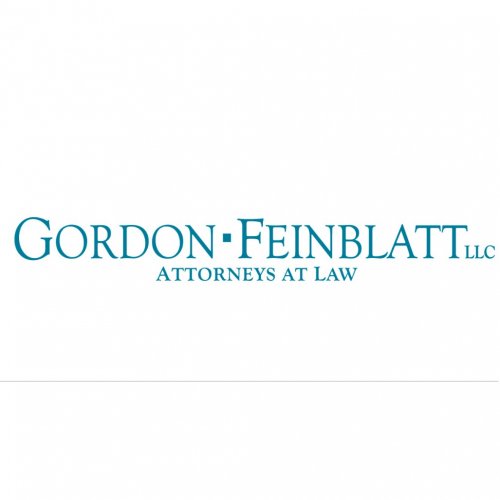Best International Trade Law Lawyers in Baltimore
Share your needs with us, get contacted by law firms.
Free. Takes 2 min.
List of the best lawyers in Baltimore, United States
About International Trade Law in Baltimore, United States
International Trade Law in Baltimore, United States is concerned with the regulations and policies governing the exchange of goods and services across international borders. It encompasses a wide range of legal issues, including customs regulations, export controls, tariffs, trade agreements, and international sales contracts. Baltimore, being a major port city, plays an integral role in international trade, which makes navigating these laws crucial for businesses engaged in importing and exporting. The framework for international trade in the United States is largely shaped by federal laws and international agreements, with local legal nuances that practitioners in Baltimore must also consider.
Why You May Need a Lawyer
There are several situations in which individuals or businesses may require legal assistance in the realm of International Trade Law:
- Negotiating and drafting international sales contracts to ensure compliance with applicable laws and protect business interests.
- Navigating customs regulations and handling disputes related to tariffs, import/export restrictions, and duty obligations.
- Understanding and implementing export control laws to prevent unauthorized transfers of technology or goods.
- Resolving trade disputes through litigation or arbitration.
- Complying with anti-dumping, subsidies, and countervailing duties regulations.
- Addressing issues related to free trade agreements and bilateral trade treaties.
- Advice on foreign direct investments and international joint ventures.
Local Laws Overview
Baltimore's role as a central trade hub brings specific local considerations in International Trade Law. Some key aspects include:
- Port of Baltimore Regulations: Businesses must comply with specific regulations governing the operations at the Port of Baltimore, which may differ from other ports.
- State-Level Incentives: Maryland offers certain state-level incentives and regulations that influence international trade, especially for businesses operating in international commerce zones.
- Tax Policies: Understanding local tax incentives and obligations for exports can be crucial for compliance and fiscal planning.
Frequently Asked Questions
What is the first step in setting up an import/export business in Baltimore?
The first step is to understand the federal requirements for importing or exporting goods, followed by registering your business with Maryland state and obtaining necessary local permits.
How do tariffs work, and who regulates them?
Tariffs are taxes imposed on imported goods. In the United States, they are regulated by the federal government, specifically through customs regulations and enforced by U.S. Customs and Border Protection.
What are Incoterms, and why are they important in international trade contracts?
Incoterms are standardized international trade terms that define the responsibilities of buyers and sellers involved in cross-border transactions concerning costs, risks, and tasks.
How do I ensure compliance with export control laws?
Compliance involves understanding relevant export control regulations, particularly those around restricted countries, end-users, and technologies, often requiring an expert’s guidance.
What are some common penalties for violating international trade laws?
Penalties can include fines, forfeiture of goods, business operation suspensions, and criminal charges, depending on the severity and nature of the violation.
Is it possible to resolve trade disputes without going to court?
Yes, many trade disputes can be resolved through arbitration, mediation, or negotiation, often being quicker and more cost-effective than litigation.
What role does the World Trade Organization play in U.S. trade law?
The World Trade Organization (WTO) establishes global trade standards that the U.S., including Baltimore, incorporates into its trade laws to ensure compliance with international agreements.
How can I find out about specific export restrictions for certain goods?
For detailed export restrictions, consult the Bureau of Industry and Security (BIS) and the International Traffic in Arms Regulations (ITAR) for defense-related items.
What are anti-dumping duties, and why would they apply to my products?
Anti-dumping duties are tariffs imposed to protect domestic industries from foreign companies selling products below market value. They apply if your imports harm local markets.
What resources are available to help with customs procedures in Baltimore?
Beyond legal counsel, resources like the U.S. Customs and Border Protection website and the Maryland Department of Commerce offer valuable guidance on customs procedures.
Additional Resources
For further assistance and information on International Trade Law, consider the following resources:
- U.S. Department of Commerce: provides trade resources and guidelines for businesses.
- Maryland Department of Commerce: offers support for Maryland-based enterprises engaged in global trade.
- Baltimore Chamber of Commerce: connects businesses with services and networking opportunities.
- World Trade Center Institute in Baltimore: an organization focused on supporting international business success.
- Export.gov: a comprehensive resource for U.S. exporters, managed by the International Trade Administration.
Next Steps
If you need legal assistance in International Trade Law, consider the following steps:
- Identify your specific legal needs related to international trade.
- Research and consult with law firms or attorneys specializing in International Trade Law in Baltimore. Initial consultations can help clarify your situation.
- Engage with local business networks and attend relevant workshops or seminars to gain insights and make connections.
- Regularly update yourself on international and local trade regulations to maintain compliance and adapt your strategies as needed.
Lawzana helps you find the best lawyers and law firms in Baltimore through a curated and pre-screened list of qualified legal professionals. Our platform offers rankings and detailed profiles of attorneys and law firms, allowing you to compare based on practice areas, including International Trade Law, experience, and client feedback.
Each profile includes a description of the firm's areas of practice, client reviews, team members and partners, year of establishment, spoken languages, office locations, contact information, social media presence, and any published articles or resources. Most firms on our platform speak English and are experienced in both local and international legal matters.
Get a quote from top-rated law firms in Baltimore, United States — quickly, securely, and without unnecessary hassle.
Disclaimer:
The information provided on this page is for general informational purposes only and does not constitute legal advice. While we strive to ensure the accuracy and relevance of the content, legal information may change over time, and interpretations of the law can vary. You should always consult with a qualified legal professional for advice specific to your situation.
We disclaim all liability for actions taken or not taken based on the content of this page. If you believe any information is incorrect or outdated, please contact us, and we will review and update it where appropriate.












